/PAlogo_v2.gif) |
|
Post Reply 
|
Page 12> |
| Author | |
criticdrummer94 
Forum Senior Member 
Joined: June 16 2011 Location: Ohio Status: Offline Points: 431 |
 Topic: The term Progressive Rock Topic: The term Progressive RockPosted: January 29 2014 at 20:28 |
|
This has always been a curiosity of mine, but I'm sure you all know better than I so when was the term Progressive Rock first coined?
|
|
 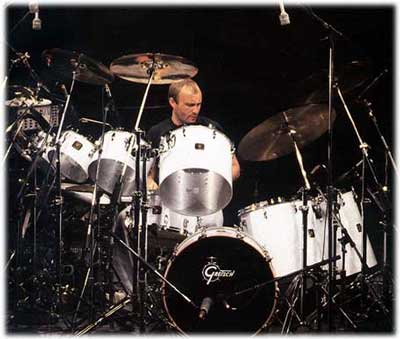
MY IDOLS |
|
 |
|
Padraic 
Special Collaborator 

Honorary Collaborator Joined: February 16 2006 Location: Pennsylvania Status: Offline Points: 31169 |
 Posted: January 29 2014 at 20:39 Posted: January 29 2014 at 20:39 |
|
August 19, 1972
|
|
 |
|
Wafflesyrup 
Forum Groupie 
Joined: December 02 2009 Location: Tx Status: Offline Points: 50 |
 Posted: January 29 2014 at 23:36 Posted: January 29 2014 at 23:36 |
|
February 23, 1968
|
|
 |
|
lazland 
Prog Reviewer 
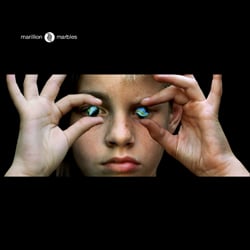
Joined: October 28 2008 Location: Wales Status: Offline Points: 13924 |
 Posted: January 30 2014 at 01:00 Posted: January 30 2014 at 01:00 |
|
December 29 1964.
As I popped out of Mother, my Dad said..."wow. Prog, man".
|
|
|
Enhance your life. Get down to www.lazland.org
Now also broadcasting on www.progzilla.com Every Saturday, 4.00 p.m. UK time! |
|
 |
|
octopus-4 
Special Collaborator 

RIO/Avant & Zeuhl, Neo, Post/Math, PSIKE Joined: October 31 2006 Location: Italy Status: Offline Points: 15008 |
 Posted: January 30 2014 at 08:37 Posted: January 30 2014 at 08:37 |
|
Some day just before a landslide
|
|
|
I stand with Roger Waters, I stand with Joan Baez, I stand with Victor Jara, I stand with Woody Guthrie. Music is revolution
|
|
 |
|
Metalmarsh89 
Forum Senior Member 

Joined: January 15 2013 Location: Oregon, USA Status: Offline Points: 2673 |
 Posted: January 30 2014 at 19:06 Posted: January 30 2014 at 19:06 |
|
When that one guy (or maybe girl) released that one album that sounded funny.
|
|
|
Want to play mafia? Visit here.
|
|
 |
|
RockHound 
Forum Senior Member 
Joined: March 03 2013 Location: USA Status: Offline Points: 687 |
 Posted: February 01 2014 at 10:40 Posted: February 01 2014 at 10:40 |
|
"Thou shalt listen to Progressive Rock."
Unfortunately, it was on one of the tablets that was destroyed on Mount Sinai. Moses truly regretted this event. I believe his precise worlds were "Oy vey!"
|
|
 |
|
npjnpj 
Forum Senior Member 
Joined: December 05 2007 Location: Germany Status: Offline Points: 2720 |
 Posted: February 02 2014 at 01:32 Posted: February 02 2014 at 01:32 |
|
I remember
distinctly when I first came across the term used in conjunction with music: |
|
 |
|
Polymorphia 
Forum Senior Member 
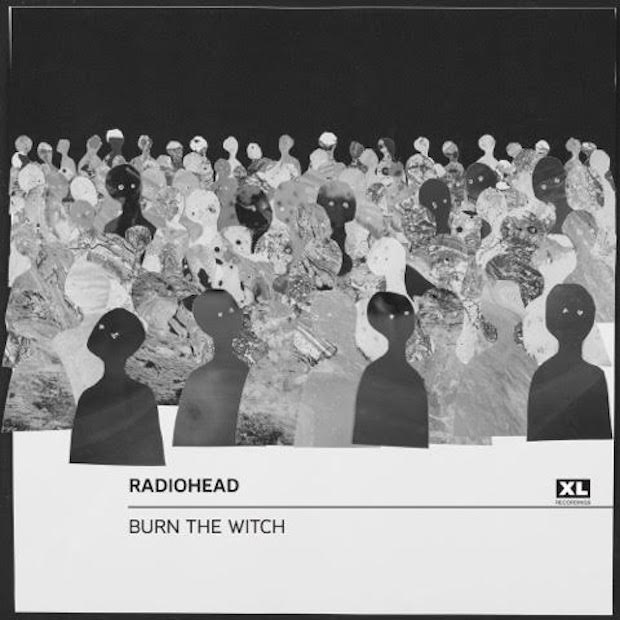
Joined: November 06 2012 Location: here Status: Offline Points: 8856 |
 Posted: February 02 2014 at 08:39 Posted: February 02 2014 at 08:39 |
|
It was found in 1957 on a monolith in Mauritius dating back to 1007 BC.
|
|
 |
|
Chimaera 
Forum Groupie 
Joined: February 04 2014 Status: Offline Points: 87 |
 Posted: February 04 2014 at 08:18 Posted: February 04 2014 at 08:18 |
|
I don't know, but I wish the originator had called it something else.
Progressive implies it can't ever stop evolving and I'm quite happy for bands to go over old ground so long as they make really good music.
|
|
 |
|
TODDLER 
Forum Senior Member 
VIP Member Joined: August 28 2009 Location: Vineland, N.J. Status: Offline Points: 3126 |
 Posted: February 04 2014 at 09:08 Posted: February 04 2014 at 09:08 |
|
I recall it being called "Art Rock" because I'm so flipping old that folks called it that when I was a teenager. Certain memories never go away. The exotic nurses that you saw on T.V. or in your dad's magazines. People everywhere were calling it Art Rock but truthfully...many elements used in Progressive Rock ...from the very start...were merely slightly used in Motown, British Invasion" and American Pop music. The decision to use this idea to totally dominet Rock composition began as bits and pieces, small portions, in Psychedelic Music...while along the way a few other bands were traveling a completely different road. Bands like Family, The Moody Blues, and even John Mayall who was attempting to place a Jazz mentality in Blues which actually made his music sound progressive..were all breaking rules of how to play or compose music. Still..they all very much stoled/borrowed from 20th Century composers of Avant-Garde, experimental electronics and many Psychedelic bands in 67' were determined to meet Beaver & Krause so they could apply the synth to their music. Beaver & Krause had consulted with Bob Moog early on and they were already performing and recording. This was a real scene of progression deriving directly from innovators and influenced Keith Emerson and most Progressive rock bands to dominet their music with keyboards. George Harrison, Rolling Stones, etc. were all determined to change their sound. This was an act of being progressive regarding the self will to take steps further and changing your music. There is no doubt that the term progressive was inevitable.
Edited by TODDLER - February 04 2014 at 09:18 |
|
 |
|
TODDLER 
Forum Senior Member 
VIP Member Joined: August 28 2009 Location: Vineland, N.J. Status: Offline Points: 3126 |
 Posted: February 04 2014 at 10:14 Posted: February 04 2014 at 10:14 |
|
From 69' to 75'...Prog bands were particularly interested in the music of Holst. The Planets seemed to influence King Crimson, Yes, Renaissance, and so many , many others I can't recall. The intro of "The Prophet" by Yes and "The Devil's Triangle" from King Crimson are commonly known ..but there were many other Prog bands from that era who were observing Holst and adding reflections of his work to their compositions. Now that this has been established as a fact which is evident and not some half-wit theory, we can realize that this was a "progression". Between 69' to 75' ...this was a strange & personal developmental stage and a progression into something else. Something "new" to reflect a sound and style ...not yet developed and personalizing the music of Gustav Holst to do it. This was an innovative act that changed the way most musicians had been currently writing. The idea to incorporate Holst and give Progressive Rock a new edge ..made it's way into various catagories of Prog..(eventually). In the life of a musician..this is termed or thought to be a "progression". Many of the original ideas to create Progressive Rock involved taking measures beyond which was thought to be (at that time), an act of insanity and a very misguiding one. This reaction came in herds and prior to Progressive Rock being promoted. You know how your surroundings might be when you create a new style of music that people are unsure of until it is delivered by "Honest Jerry" on a billboard or radio broadcast. "You work for me..or you don't work at all" type of situation. The huge percentage (I would say), of the Classical world were very stand-offish, offended, and hostile toward the music of ELP and Yes. I recall many of them turning their noses up into the air and commenting how insulting it was to hear Classical music combined with the sound of an organ being smashed on stage. The term progressive for a musician defines progressive playing. And in terms of the rating of levels, it does mean that you must practice endlessly and devote your entire life to it. If you reach a certain higher level where..you are a decent composer, studied various styles of music, have great chops, then you can cut that practice time in half. So ..I remember musicians calling it Progressive Rock during that time and I know that Progressive Jazz existed before Prog..so I believe the word progressive has been a reference point for musicians since..probably the 1930's and the words "progressive" and "progression" are often applied like a religion in a sense where it is requested by a music professor for you to devote your life to an instrument. The word progressive is cemented into the musician's environment/social surroundings/lifestyle. Edited by TODDLER - February 04 2014 at 10:33 |
|
 |
|
cstack3 
Forum Senior Member 
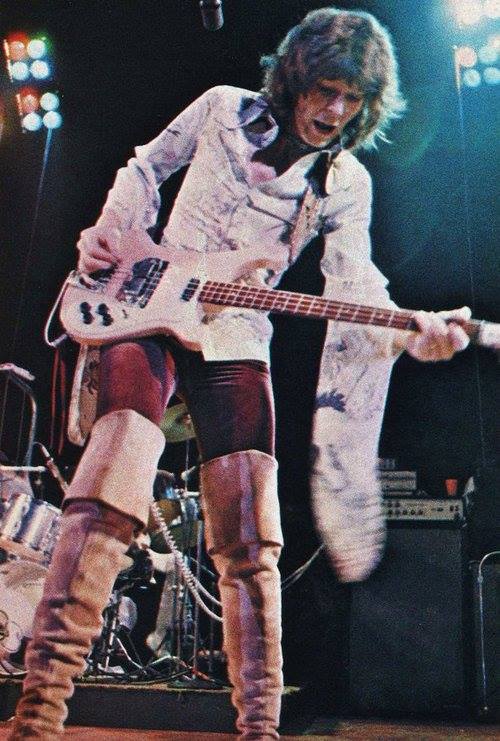
VIP Member Joined: July 20 2009 Location: Tucson, AZ USA Status: Offline Points: 7637 |
 Posted: February 05 2014 at 00:23 Posted: February 05 2014 at 00:23 |
|
^Thanks, Toddler, that was a fine read!
I find it hard to parse the term "progressive"....hell, Django was progressive for his era! (Imagine that cat with a Les Paul, fuzz tone etc.!). That is a big reason why I don't like the label "progressive"...John Wetton once said "Everyone who wants to be progressive, in inverted comas, want to use
mellotrons, Marshall amps and Rickenbacker basses, you know, it's all
back to 1973, which is hardly progressive. So it's very much regressive.
But it seems that progressive has become a generic term for a style of
music which involves time changes, classical moods..." I really don't like to label music at all. Deep Purple & Led Zep used to be lumped in with "heavy metal," and although they have elements of that, the musicians bristled at the term. Keep writing, Toddler!
|
|
 |
|
TODDLER 
Forum Senior Member 
VIP Member Joined: August 28 2009 Location: Vineland, N.J. Status: Offline Points: 3126 |
 Posted: February 05 2014 at 10:01 Posted: February 05 2014 at 10:01 |
|
Sounds become dated...not the playing itself. The notes are still progressive to play unamplified. Deep Purple and Led Zeppelin were pigeon-holed with this "Heavy Metal" term because their most ultimate work was established during a period in time when "Hard Rock" was popular. The guitar sound was to be more distorted. You can hear the howling dark sounding vibrato of Paul Kossoff on Free's Tons Of Sobs in 1968. His choice of notes were different than Eric Clapton's on the Live Cream album. Tony Iommi has that distinctive sound on the first Sabbath album. Peter Green had written "The Green Manalishi" which was covered by Judis Priest. Luther Grosvenor created a very heavy guitar sound on Spooky Tooth's rendition of "I Am The Walrus". Jimmy Page's guitar sound in 1968 was very heavy and distorted unlike what one would hear before. Jimi Hendrix played very loud, but his style was not based around anything these British guitarists were doing with notes and he had no close connection with their style of songwriting. Maybe "Astro Man" has that particular affect on people, but not most of his songs due to his influence from R&B, Soul, and Chicago Blues like Buddy Guy. All of the guitarists I've mentioned took part in the British Blues Boom...movement...creating albums of straight up Blues combined with some sophistication on sax solos, harmonica, keyboards, and horn sections. They left it behind for this so called "Hard Rock" sound.On the Yardbirds' Little Games..it is clear that Page's guitar style was developing a new style of "Hard Rock" music. Unfortunately he doesn't get enough credit for his acoustic playing which is impeccable because he has a background in traditional European open guitar tunings and playing. Unfortunately...Deep Purple gets more credit for their influence on Metal than fusing Classical with Rock. That's the Rock journalists fault.
Edited by TODDLER - February 05 2014 at 10:09 |
|
 |
|
Barbu 
Forum Senior Member 

Joined: October 09 2005 Location: infinity Status: Offline Points: 30855 |
 Posted: February 05 2014 at 10:09 Posted: February 05 2014 at 10:09 |
|
Progressive rock never existed, dudes!
|
|
 |
|
dr wu23 
Forum Senior Member 

Joined: August 22 2010 Location: Indiana Status: Offline Points: 20712 |
 Posted: February 05 2014 at 12:06 Posted: February 05 2014 at 12:06 |
|
I enjoyed this article on wiki regarding prog rock; though I don't agree with everything written there it's a nice exploration of the genre in general. As always there will be disagreement on when it started and what it actually is.
http://en.wikipedia.org/wiki/Progressive_rock
from the article:
The Nice, The Moody Blues, Procol Harum and Pink Floyd all contained elements of what is now called progressive rock, but none represented as complete an example of the genre as several bands that formed soon after.[212] Almost all of the genre's major bands, including Jethro Tull, King Crimson, Yes, Genesis, Van der Graaf Generator, ELP, Gentle Giant and Curved Air, released their debut albums during the years 1968–1970. Most of these were folk-rock albums that gave little indication of what the band's mature sound would become, but King Crimson's In the Court of the Crimson King (1969) was a fully formed example of the genre.[213] The term "progressive rock," which appeared in the liner notes of Caravan's 1968 self-titled debut LP, came to be applied to these bands that used classical music techniques to expand the styles and concepts available to rock music.[214][113]
|
|
|
One does nothing yet nothing is left undone.
Haquin |
|
 |
|
cstack3 
Forum Senior Member 

VIP Member Joined: July 20 2009 Location: Tucson, AZ USA Status: Offline Points: 7637 |
 Posted: February 06 2014 at 23:42 Posted: February 06 2014 at 23:42 |
|
According to this article, Yes, ELP, Tull etc. were part of "art rock." That's what we used to call them back in the 1970's in Chicago.
I dislike the term "prog" myself. I rarely use it, and prefer to refer to either individual bands or sub-genres like fusion etc. All rock is progressive, in that it progresses from the form preceding it. Hendrix progressed from Chuck Berry etc. It's all great music, but the labels turn me off.
|
|
 |
|
TODDLER 
Forum Senior Member 
VIP Member Joined: August 28 2009 Location: Vineland, N.J. Status: Offline Points: 3126 |
 Posted: February 08 2014 at 21:49 Posted: February 08 2014 at 21:49 |
|
Unorthodox recording methods were a vital part of Progressive Rock. The term revolved around experimenting with effects, recording environmental sounds, and combining those ideas to be part of an epic piece. One particular unorthodox recording method was to surround a kettle drum with 4 microphones and spread kitty litter evenly around the drum skin. You would then hit record and strike the drum with a mallet. When played back on tape....it sounded like a fireworks display. The sound of a whistle in flight or frequency of an object flying at rapid speed through the air was present. It takes a creative individual to think up an idea like that. This is all done by pressing a key or a button in today's world. Roger Waters and Syd Barrett were very interested in unorthodox recording. Ron Geesin who charted out Atom Heart Mother was a multi talented string player who recorded electronic/experimental type music of his own for film. They were all part of a developing progressive rock scene and this commonly known experimentation in music was an element of surprise to people who were followers of Art Rock/Progressive in the late 60's and early 70's. The sound effects and the experimentation with new unorthodox recording methods shocked people and helped to raise their interest in the storyline of the Prog epic. Supper's Ready contained studio tricks and sound effects to accompany the progression of the play. It was like a play in a theatre and those bizzare sounds throughout the piece were carefully planned to draw the listener in.
|
|
 |
|
HackettFan 
Forum Senior Member 
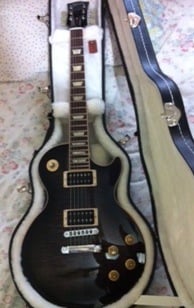
Joined: June 20 2012 Location: Oklahoma Status: Offline Points: 7951 |
 Posted: February 09 2014 at 21:27 Posted: February 09 2014 at 21:27 |
I can't agree more. Experiments with timbre are for me one of the essential components of Prog. It often gets ignored. People talk about the classical influence of Prog, but its more than that. These guys were getting orchestral sounds without an orchestra. Part of it was the mellotron, but Genesis was already well into their orchestral sound before they procured one for Foxtrot. It wasn't just the playing style. It was what they got out of their instruments, and there wasn't even much to work with back then. There's a place where Anthony Phillips, for instance does a slow rise on the volume knob, then at it's peak hammers a note a half step above and let's it trail off with a slow downturn of the volume knob. It doesn't even sound like a guitar. And of course Steve Hackett followed this up with numerous experiments with the volume pedal. There's much more to be said. I'll have to look to see if there's a thread devoted to this. |
|
 |
|
progbethyname 
Forum Senior Member 

Joined: July 30 2012 Location: HiFi Headmania Status: Offline Points: 7889 |
 Posted: February 10 2014 at 19:07 Posted: February 10 2014 at 19:07 |
|
I like to use the term, 'Progressive Rock' to describe in a broad sense all of which that is progressive, meaning when. Someone asks me what music I particularly enjoy I do more often now say 'Progressive Rock.' Prog Rock follows all 23 sub genres put under it as a statement for useful classification. Ergo, the term progressive rock implies all types (sub genres) under it. It's just useful and efficient classification and I need something like this cause I truly adore a good 15 different sub-genres of progressive music. :)
|
|
|
Gimmie my headphones now!!! 🎧🤣
|
|
 |
|
Post Reply 
|
Page 12> |
| Forum Jump | Forum Permissions  You cannot post new topics in this forum You cannot reply to topics in this forum You cannot delete your posts in this forum You cannot edit your posts in this forum You cannot create polls in this forum You cannot vote in polls in this forum |